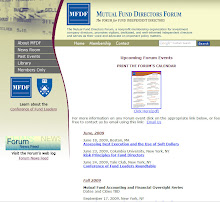- Advising the Commission on matters of concern to investors in the securities markets;
- Providing the Commission with investors' perspectives on current, non-enforcement, regulatory issues; and
- Serving as a source of information and recommendations to the Commission regarding the Commission's regulatory programs from the point of view of investors.
- Fiduciary duty: Should all financial intermediaries who provide investment advice to their customers be subject to the same fiduciary duties, and how should those duties be defined? Many investors rely heavily on financial advisors for investment decisions, but may not understand the different standards that apply to brokers and investment advisers.
- Proper disclosures: Does the information that investors currently receive — both before making an investment decision and afterwards — meet their needs, and if not, what changes are necessary to ensure that investors have the information that they need, when they need it?
- Technology: Can technology be better used to improve the flow of information to and from investors?
- Financial Literacy: Should there be a distinction between "investor information" and "investor education," and if so, what is that distinction? What is the role of "financial literacy," and how can the SEC promote early education of these issues?
- Valuation: Do investors fully understand the role that underlying asset valuation plays in portfolio and fund valuation? For example, do investors in variable annuities understand that guaranteed minimum payouts do not necessarily hold if the underlying investments (mutual funds, etc.) decline by a certain amount? Do fixed income investors understand that high yield bond funds involve more risk than other fixed income investments, or that fixed income investments are typically much less liquid and, therefore more difficult to definitively value, than are equities?
- Majority Voting: Should majority voting for directors be mandatory for all U.S. companies? Although most large U.S. companies have adopted a form of "majority voting," many other companies still enable directors to be elected based only on plurality support.
- Director-Investor Communications: Are there more effective ways for investors and directors to communicate with one another and what steps can the Commission take to facilitate dialogue and help ensure that corporate manager interests are aligned with investor interests?
- Proxy Voting: Do investors — both institutional and individual — have the information they need to make informed proxy voting decisions, and are these decisions effective in holding corporate directors accountable? Does the proxy voting process and system foster informed decision-making? Should there be more transparency to the market about investors' proxy decisions? What is the role of proxy advisory firms, and should they be subject to more oversight by the Commission?
- Resources: Does the SEC have the resources it needs to effectively achieve its investor protection mission?
Materials considered by the Committee at its meeting are posted on the SEC's Web site at http://www.sec.gov/spotlight/
investoradvisorycommittee.htm.
The full text of the SEC's July 29, 2009 press release is available at: http://www.sec.gov/news/press/2009/2009-175.htm
Related articles:
- "Investor Advisory Committee to Hold Public Meeting," July 9, 2009
- "SEC Forms Investor Advisory Committee," June 5, 2009





